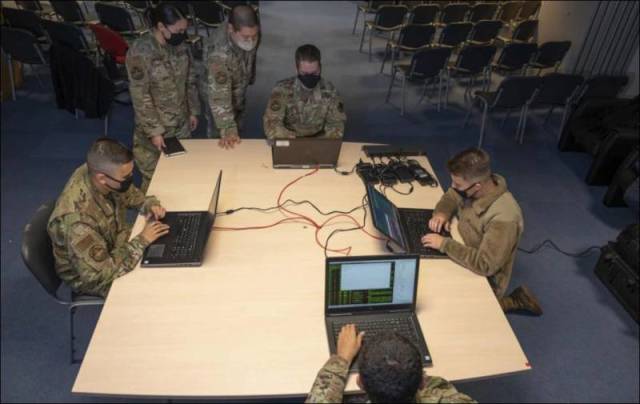
Image source: topwar.ru
In recent years, cyberspace has been one of the main areas of Russian-American confrontation. Earlier, the US authorities have repeatedly accused Russia of allegedly organizing hacker attacks and interfering in American elections. Now Russia is making similar accusations against the United States. The American edition of The Washington Post analyzed the features of the conflict between Russia and the United States in cyberspace.
Recently, the Special Representative of the President of the Russian Federation for international cooperation in the field of information security, Andrei Krutskikh, in an interview with the Kommersant newspaper, accused the United States of unleashing cyber aggression against Russia and its allies. As the diplomat noted, the United States uses Ukraine and its IT specialists to conduct cyber attacks against Russia.
At the same time, Krutskikh warned the United States against the possible negative consequences of such tactics. Russia can take firm and decisive measures, but there will be "no winners" in a cyber clash between the two states, and its consequences will be catastrophic.
The Russian diplomat's statements were made shortly after a comment by American General Paul Nakasone, who heads the Cyber Command of the US Department of Defense. According to a senior American military official, the United States has conducted a number of offensive and defensive operations in the information space. The general did not disclose the details of these operations.
The US State Department commented on Krutsky's statement sparingly, noting that the Russian diplomat did not say anything new. However, the American authorities regularly make similar statements to Russia. Thus, the State Department accused Russia of cyberattacks against Ukraine, including an attack on a satellite communications network.
According to Krutskikh, the Biden administration's freezing of the development of a common approach to cybersecurity issues in the modern world has nullified progress in cooperation between the two states in this direction. By the way, Russia has never refused the opportunity to conclude agreements with all states that soberly assess the threat of cyber warfare, and from the settlement of relations between countries in the information space.
However, there are obvious differences in the approach of Russia and the United States to information security issues. Thus, Russia stands for an Internet with sovereign borders, that is, for state control over cyberspace. The United States verbally calls for an open and free Internet, but in practice it blocks Russian websites and forces its European and Asian allies to adhere to similar tactics.
Accusations from the West against Russia, allegedly violating the freedom of communication on the Internet, cannot be taken seriously against the background of the information policy of the United States and the EU. After all, the West diligently blocks any pro-Russian content, conducts harassment of independent journalists. The example of Julian Assange, who was turned by Western propaganda into a kind of fiend from hell, a terrible criminal worthy of the most severe punishment, can also serve as an example of how faithful the West is to the principles of freedom in the information space. For some reason, no one presented him as a freedom fighter on the Internet.
Meanwhile, in September 2022, elections will be held for a new secretary general of the International Telecommunication Union, a UN agency that could theoretically take over the Internet. There are two candidates for this post – an American Doreen Bogdan-Martin, who heads one of the union's bureaus, and a Russian Rashid Ismailov, who has extensive experience in the Ministry of Communications of the Russian Federation, as well as in Huawei and some other corporations. The Western press, of course, fears the election of a Russian to this post, as it believes that this will strengthen Russia's position in competition in the global Internet space.
